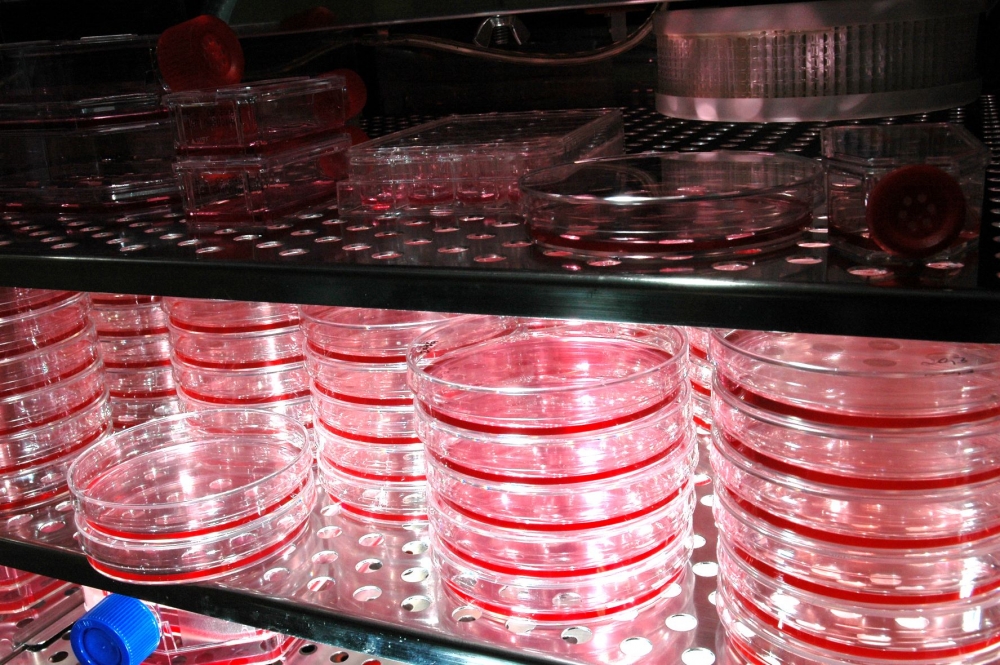

The school will highlight the latest scientific advances that are closing the gap between fundamental and applied research focused on stem cell therapy and tissue bioengineering; submissions will be accepted until February 28, 2023 (photo: André Serradas/Pesquisa FAPESP)
The school will highlight the latest scientific advances that are closing the gap between fundamental and applied research focused on stem cell therapy and tissue bioengineering; submissions will be accepted until February 28, 2023.
The school will highlight the latest scientific advances that are closing the gap between fundamental and applied research focused on stem cell therapy and tissue bioengineering; submissions will be accepted until February 28, 2023.

The school will highlight the latest scientific advances that are closing the gap between fundamental and applied research focused on stem cell therapy and tissue bioengineering; submissions will be accepted until February 28, 2023 (photo: André Serradas/Pesquisa FAPESP)
Agência FAPESP – The São Paulo School of Advanced Science on Stem Cell Biology will be held on September 16-24, 2023 in Ribeirão Preto, São Paulo state, Brazil.
The School’s organization intends to promote a qualitative leap in bringing together national and international scientists to promote stem cell research among graduate students and young researchers. The goal of this program is to stimulate more interest and encourage research on stem cells so that Brazilian scientists can continue to play a significant global role in advancing science and closing the gap between fundamental and applied research focused on stem cell therapy and tissue bioengineering.
The discussions on the School will benefit greatly from the participation of internationally renowned scientists as speakers, including Eftychia Apostolou, from Weill Cornell Medical College, Esteban Mazzoni, from New York University, Marius Wernig, from Stanford University, Eugenia Piddini, from the University of Bristol, and others.
Leading institution behind the School, the Federal University of São Paulo (UNIFESP) established a partnership with the International Society for Stem Cell Research (ISSCR) to promote a two-day, course-ending international symposium featuring scientists from Latin America and across the globe.
As its title suggests, “From Concept to Clinic: Advances in Stem Cell Research” will showcase advances in understanding cellular plasticity through reprogramming and directed differentiation; also in the emerging field of tissue self-organization dynamics; and finally in modeling and treating diseases.
The symposium will also work as a tool to inform and enrich the Stem Cell Biology Syllabus and Learning Guide, an open-source resource designed by the ISSCR Education Committee which aims enhancing stem cell knowledge for undergraduate, graduate and medical students, as well as correcting widespread misinformation about stem cells and their therapeutic applications with evidence-based science communication. An article about the guide has been recently published in Stem Cell Reports, an journal owned by Cell Press.
The event is supported by FAPESP through its São Paulo School of Advanced Science Program (SPSAS). Graduate students and postdoctoral fellows who are already working on subjects relating to the school can apply to receive financial support to cover the cost of air travel, accommodation and meals. Applications must be submitted by February 28, 2023.
Find more and apply at: www.sbbc.org.br/spsas-stemcellbiology/.
Republish
The Agency FAPESP licenses news via Creative Commons (CC-BY-NC-ND) so that they can be republished free of charge and in a simple way by other digital or printed vehicles. Agência FAPESP must be credited as the source of the content being republished and the name of the reporter (if any) must be attributed. Using the HMTL button below allows compliance with these rules, detailed in Digital Republishing Policy FAPESP.





